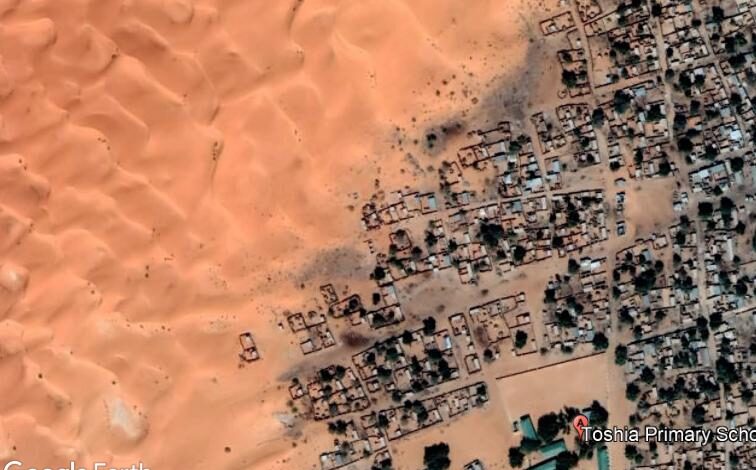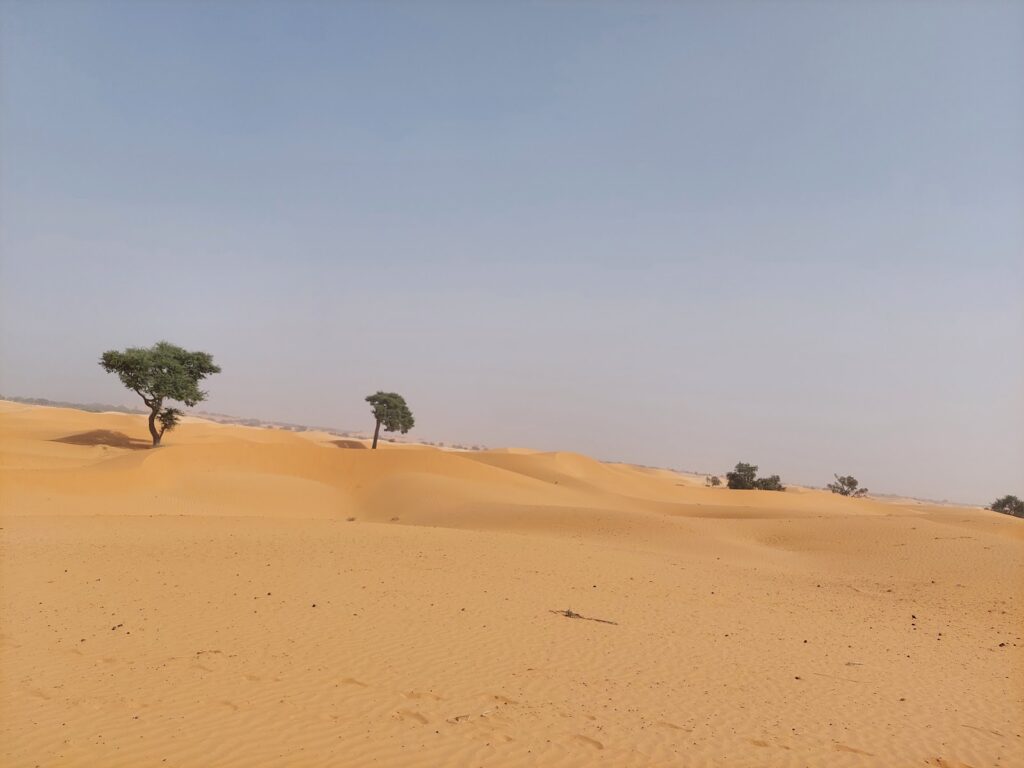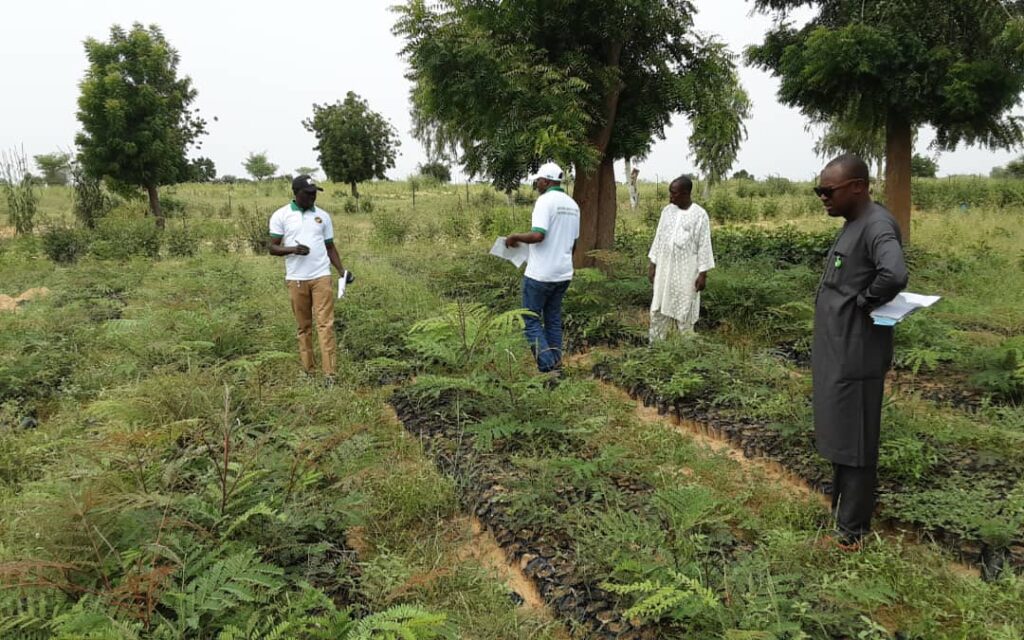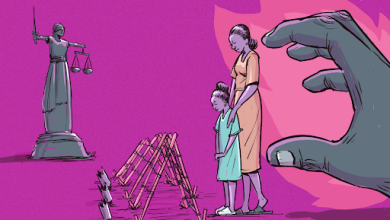Great Green Wall: A Glance At Nigeria’s Line Of Defence Against The Sahara
Nigeria's ambitious Green Wall project is designed to restore degraded land and curb the Sahara Desert’s southward drift. The project is also supporting livelihood in rural areas.

Nigeria’s struggle to improve rural livelihood and living conditions include a project to put together a green wall of trees designed to halt desertification and the risks related to the drifting of the Sahara Desert in the North of the country.
In 2014, the government commenced the Great Green Wall project comprising a 1,500km long greenbelt stretching across the 11 frontline states of Jigawa, Kano, Katsina, Kebbi, Sokoto, and Zamfara in the Northwest and Adamawa, Bauchi, Borno, Gombe, and Yobe in the Northeast.
The project is part of the ambitious African Union-led Great Green Wall initiative that aims to restore the continent’s degraded landscapes, revitalise thousands of communities, boost food security, and strengthen climate resilience.
Last year, at a side event of the Climate Change Summit, COP 26 on the Great Green Wall, Nigeria’s President Muhammadu Buhari expressed hope regarding the project’s execution. He was quoted to have said, “With all hands on deck and concerted efforts at land restoration by African leaders, I am optimistic that Africa’s ambition of restoring over 100 million hectares of the degraded landscape for productive agriculture is achievable.”

The wall is designed to check desertification and contain the threats from rolling Sahara deserts and sand dunes as well as promote land restoration and conservation using both economic and forest tree species based on a community-driven and rural development model.
In 2015, the government established a National Great Green Wall Agency (NAGGW) to coordinate the tree planting process, management and the installation of support services, and provision of infrastructure such as solar systems and water for herders and farming communities.
“The Great Green Wall initiative helps communities mitigate and adapt to the impact of climate change, especially around the Sahelian region,” says Sadiq Aliyu, a member of the Nigerian Environmental Society.
According to details of the agency’s intervention for 2020 obtained by HumAngle, 30 community nurseries were established across the 11 frontline states alongside 10 central nurseries in five states.
Other interventions included the establishment and fencing of 300km of shelterbelt in Borno, Jigawa, Katsina, Sokoto, and Yobe states, in addition to setting up and fencing an estimated 170 hectares of woodlots in Adamawa, Bauchi, Gombe, Jigawa, and Kano states.

The agency was also involved in building the capacity of farmers to improve climate resilience as well as the provision of solar home systems and livelihood empowerment in the areas of balanites oil extraction, honey production, and micro-gardens for vegetable production.
Restoration efforts within the same year comprised 560 hectares of degraded ecosystem restored in Bauchi, Jigawa, and Sokoto. The project was said to have adopted seeds of indigenous trees and herbaceous fodder species with 150,000 seedlings raised in five community nurseries.
“We assist mostly the rural communities in land reclamation and registration for farming activities,” the agency’s Director-General, Dr Bukar Hassan, told Air Transport Quarterly (ATQ) Magazine last year.
“We realised that most youths migrate to the cities for menial jobs during dry season or when lands are destroyed. Therefore, we train the youths and women in agriculture such as animal husbandry and breeds, planting of crops, tailoring, irrigation, and a host of others. To encourage them, we provide them with facilities and take-off grants.”
He mentioned poverty and illiteracy in rural areas as some of the key challenges the agency has faced. These, he explained, prevent residents from expanding their farming activities or maintaining essential projects.
“The emerging challenge,” he added, “is the issue of security where bandits and kidnappers prevent farmers from going to their farms. Even our field officers are not spared and, therefore, their movements are restricted or completely halted.”
Nigeria’s Great Green Wall agency receives funding from multiple sources, including allocations from the federal budget and Development of Natural Resource Funds (DNRF), African Development Bank (AfDB), European Union (EU), and World Bank.
The project has encountered setbacks in the course of its implementation including failed contracts, insecurity, and the lack of community ownership.
Support Our Journalism
There are millions of ordinary people affected by conflict in Africa whose stories are missing in the mainstream media. HumAngle is determined to tell those challenging and under-reported stories, hoping that the people impacted by these conflicts will find the safety and security they deserve.
To ensure that we continue to provide public service coverage, we have a small favour to ask you. We want you to be part of our journalistic endeavour by contributing a token to us.
Your donation will further promote a robust, free, and independent media.
Donate HereStay Closer To The Stories That Matter




